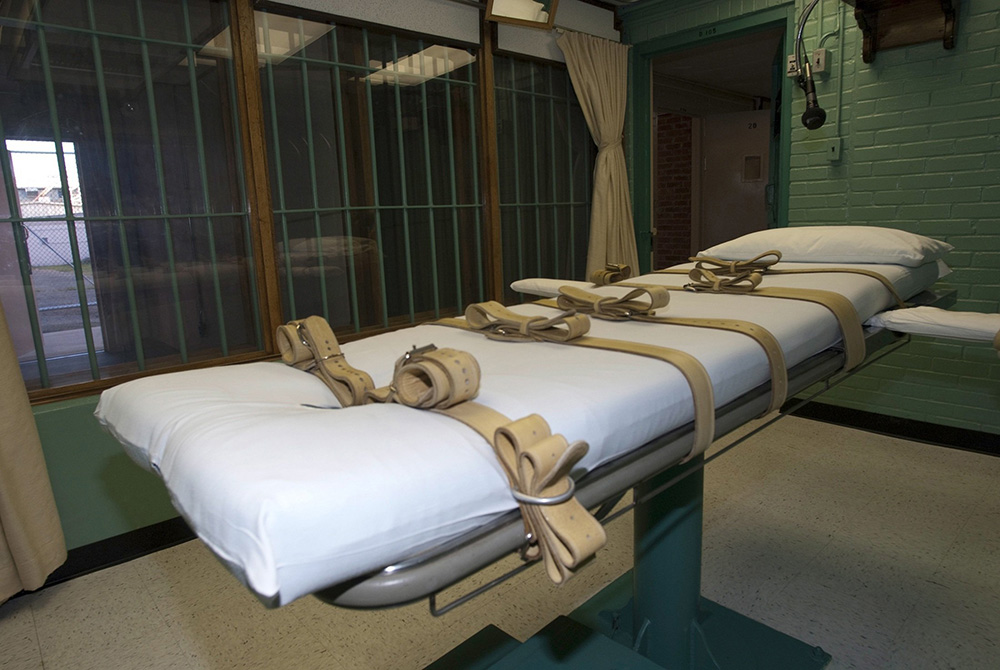
WASHINGTON — A Catholic advocate against the death penalty was encouraged by an annual report, released Dec. 1, that shows that 29 states either abolished the death penalty or paused executions this past year.
The report also showed that fewer states used capital punishment this past year but more prisoners were executed than the previous year.
“It’s encouraging that we saw most states growing more and more reluctant to engage with the death penalty,” said Krisanne Vaillancourt Murphy, executive director of Catholic Mobilizing Network. “It’s not lost on the American public that capital punishment is too flawed and risky, too arbitrary and unfair, too cruel and dehumanizing to justify pursuing executions.”
The annual Death Penalty Information Center’s Year End Report for 2023 showed that for the ninth consecutive year less than 30 people were executed and less than 50 were sentenced to death in the past year. In 2023, 24 inmates were executed and 21 people were sentenced to death in the U.S.
The report also said the nation’s use of the death penalty remains limited to five states — Texas, Florida, Missouri, Oklahoma, and Alabama — and seven states imposing death sentences — Alabama, Arizona, California, Florida, Louisiana, North Carolina, and Texas.
Robin Maher, executive director of the nonprofit Washington-based Death Penalty Information Center, said, “The death penalty is again becoming increasingly isolated in its use in the United States.”
The report’s mixed news also shows the work ahead for death penalty opponents because it showed that the number of executions increased from 18 in 2022 to 24 in 2023, an uptick the report attributed to Florida’s return of executing death row inmates for the first time since 2019, after a push by state’s Republican governor, Ron DeSantis.
In 2023, Florida executed six people and handed down five new death sentences, more than any other state.
In the past year, DeSantis signed two bills putting in place new death penalty laws. One allows the death penalty in child rape convictions and the other ends a unanimous jury requirement for imposing death penalty sentences.
In the win column for death penalty opponents, the report also cited an October 2023 Gallup poll that found that more Americans now believe that the death penalty is administered unfairly than fairly.
The poll said 50% of Americans believe capital punishment is applied unfairly, compared to 47% who believe it is fairly implemented. Maher said this was the highest number the poll has found since it first began asking about the fairness of the death penalty’s application in 2000.
This shows that most Americans “no longer believe the death penalty can be imposed fairly,” Maher said in a statement.
The center’s report also points out that states have had a hard time obtaining the drugs used in lethal injections and have looked into other methods of execution.
Alabama, for example, plans to execute a prisoner with nitrogen gas next January, and this summer, Idaho became the fifth state to authorize executions by firing squad.
Vaillancourt Murphy said she believes the practice of using the death penalty in this country is “on its way out.”
“We believe that the few outlier states that continue to execute and sentence people to death can, and ultimately will, course correct and distance themselves from this inhumane practice,” she said in a statement.
The anti-death penalty advocate also stressed that Catholics have a role “in pushing the few remaining states that actively use the death penalty toward the right side of history.
“As Catholics who believe every life is sacred, we have an important message to share with elected leaders in states where the death penalty still persists. In the coming year, I pray more Catholics will harness their faith to call for an end to this flawed, immoral system and to seek approaches to justice that honor the sanctity of life, rather than throw it away.”
